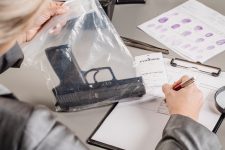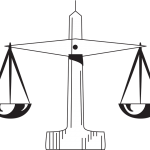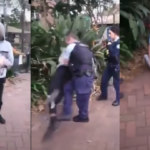How to Tell if a Subpoena is for a Legitimate Forensic Purpose

A subpoena is a document requiring a person or organisation to hand-over documents or other evidence that may be relevant to a court case, or to attend court as a witness.
Although subpoenae are normally prepared by a party to the proceedings (eg a defendant), they are a court-issued document and any person who refuses to comply with a subpoena can face a warrant for their arrest and/or criminal charges.
If you are in the process of defending criminal charges, it is useful to know about how subpoenae can help you in your defence.
A subpoena to produce is a request to a third party to provide evidence which they may have in their possession, custody or control that is relevant to a court proceeding.
A subpoena can only be issued if it is for a legitimate forensic purpose and not for the purpose of fishing for evidence, or on a hunch.
If you are served with a subpoena to attend court, it means that your presence is required to give verbal testimony during proceedings.
If you are issuing a subpoena, it’s important to comply with the law and to follow proper procedures.
Failing to do so could mean that the subpoena is ‘set aside’ as invalid and that you will not be able to obtain the relevant documentation to help support your defence.
One of the main times that subpoenae are set aside is when they are not considered to have been issued for a legitimate forensic purpose.
What is a legitimate forensic purpose?
A ‘legitimate forensic purpose’ is one that is relevant to the case, and the person subpoenaed must reasonably be expected to have the materials sought in their possession, custody or control.
The request must be based on some relevant information rather than mere speculation.
The subpoena must specifically describe the materials sought, rather making a vague request in the hope that something relevant will turn up.
A legitimate forensic purpose may include the need to prove your whereabouts on a particular day or time, or to provide materials to refute the story of an eyewitness.
Subpoenae can be served on police, telephone companies, banks, forensic laboratories, medical practitioners and other organisations and individuals who you have good reason to believe may have evidence that will help prove your innocence.
How can I make sure my subpoena isn’t set aside?
If you intend to serve a third party with a subpoena, it’s a good idea to seek legal advice.
There are a number of common pitfalls that accompany subpoenae, including when people don’t follow the correct process or use the wrong wording on forms.
Unfortunately, a lack of legal understanding can affect the outcome of your legal matter as it could lead to the subpoena being set aside, which could then weaken your defence.
To ensure that your subpoena isn’t set aside on the grounds of not being for a legitimate purpose, it’s important that you are reasonably specific in the wording of the nature of the materials that are sought.
This can be difficult because if you are too specific it could lead to limitations on the scope of evidence sought, but if you aren’t specific enough you could end up with the wrong documents, or face accusations of fishing for evidence.
You therefore need to clearly state the type and scope of the materials sought, giving specifics and including locations and dates where relevant.
It’s important to be aware that the documents sought through a subpoena won’t be sent directly to you or your lawyer.
Rather, they will need be produced to the court office on or before the date requested.
You or your lawyer will have to appear in court before a Registrar, Magistrate or Judge to seek access to those materials on the ‘return of subpoena date’ – which is a date recorded on the subpoena when you initially file it at the court registry.
If access is granted, you or your lawyer will need to arrange to collect the materials from the court office.
If the person you are issuing the subpoena to objects and requests that it be set aside, the court will then list a ‘hearing date’ when you and/or your lawyer will need to attend court to explain why you are seeking the materials.
If you wish to issue a subpoena, it’s a good idea to seek legal advice first.
Properly drafted subpoenae can lead to the production of case-changing materials – and make all the difference to the outcome of your matter.
If you aren’t sure whether the materials you are seeking will meet the ‘legitimate forensic purpose’ test, call and speak to an experienced criminal lawyer.






